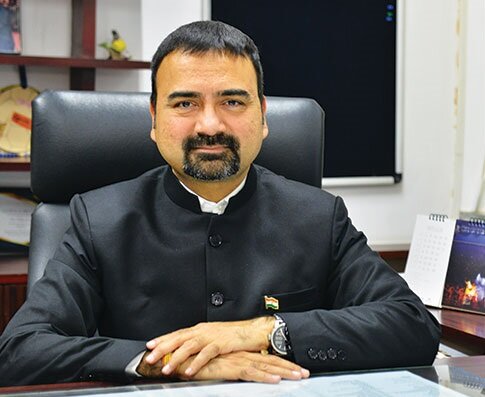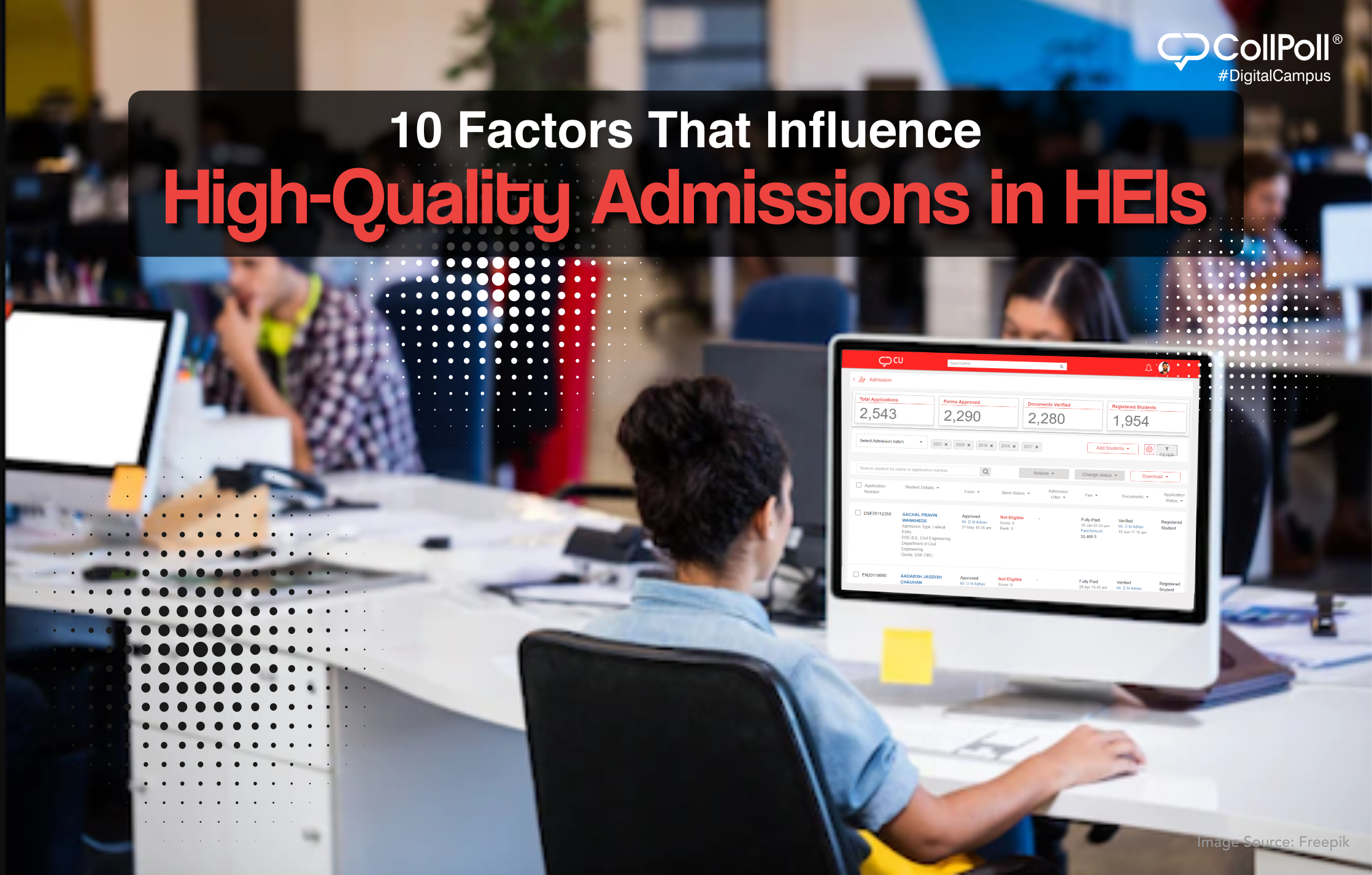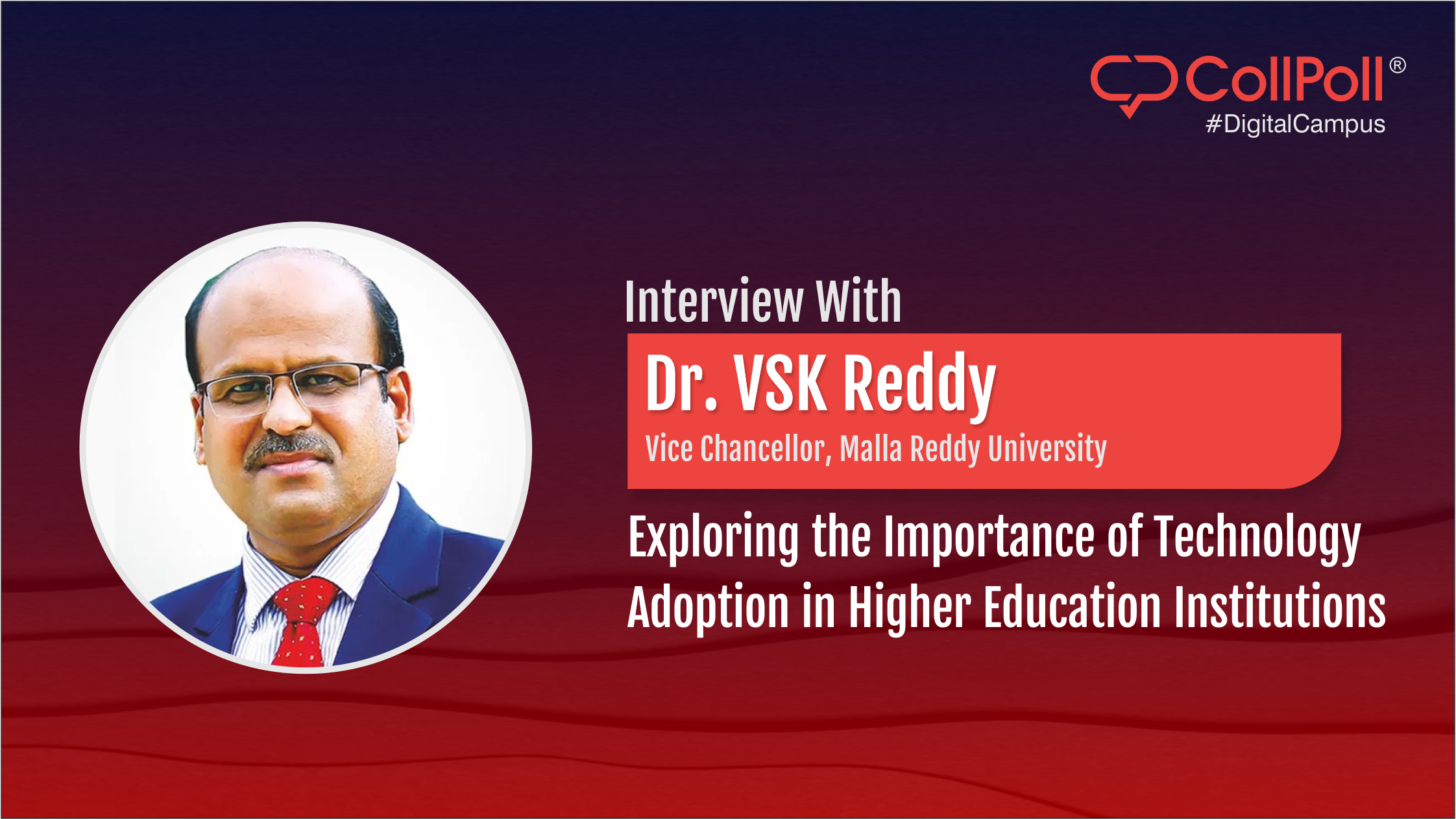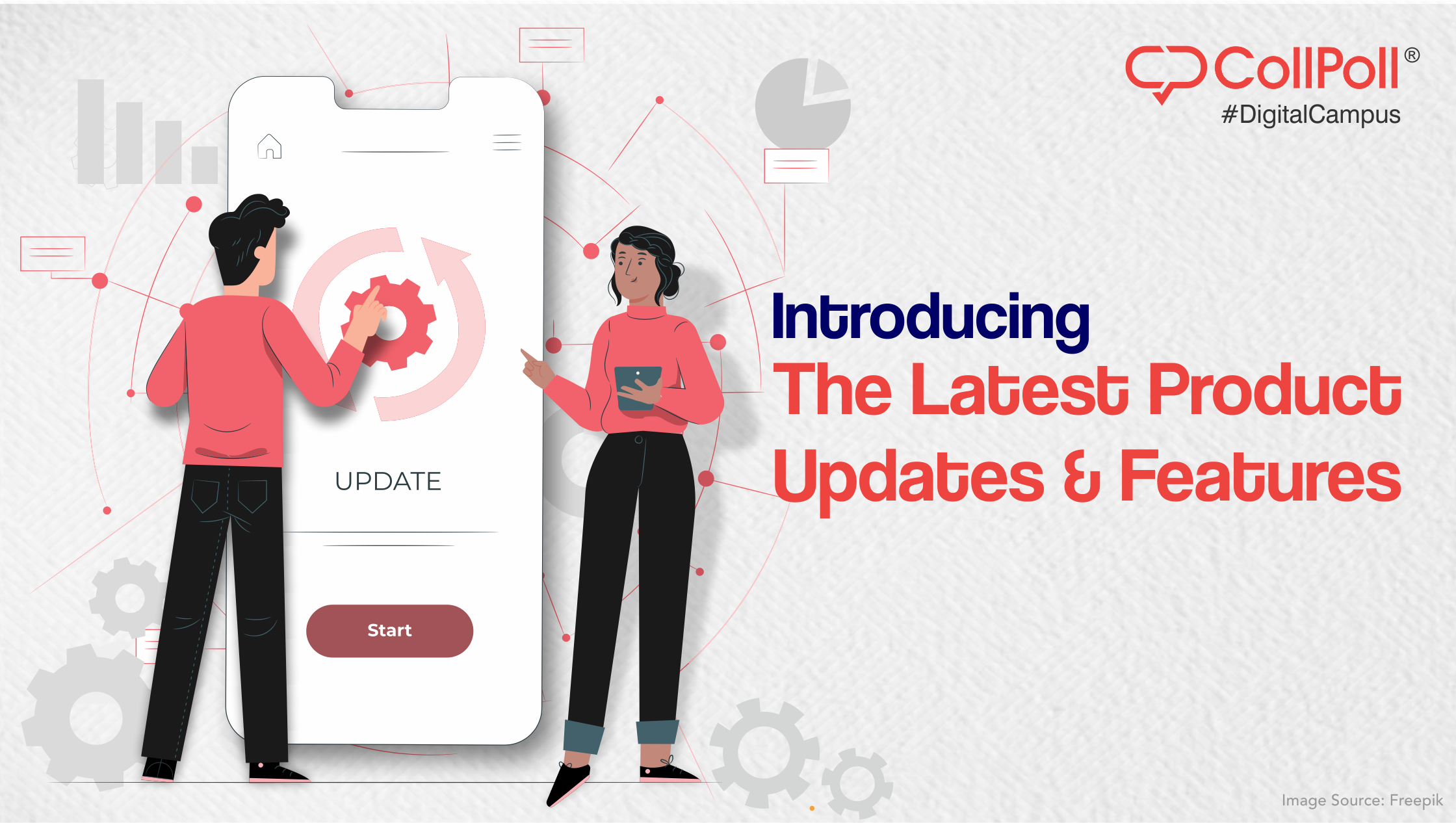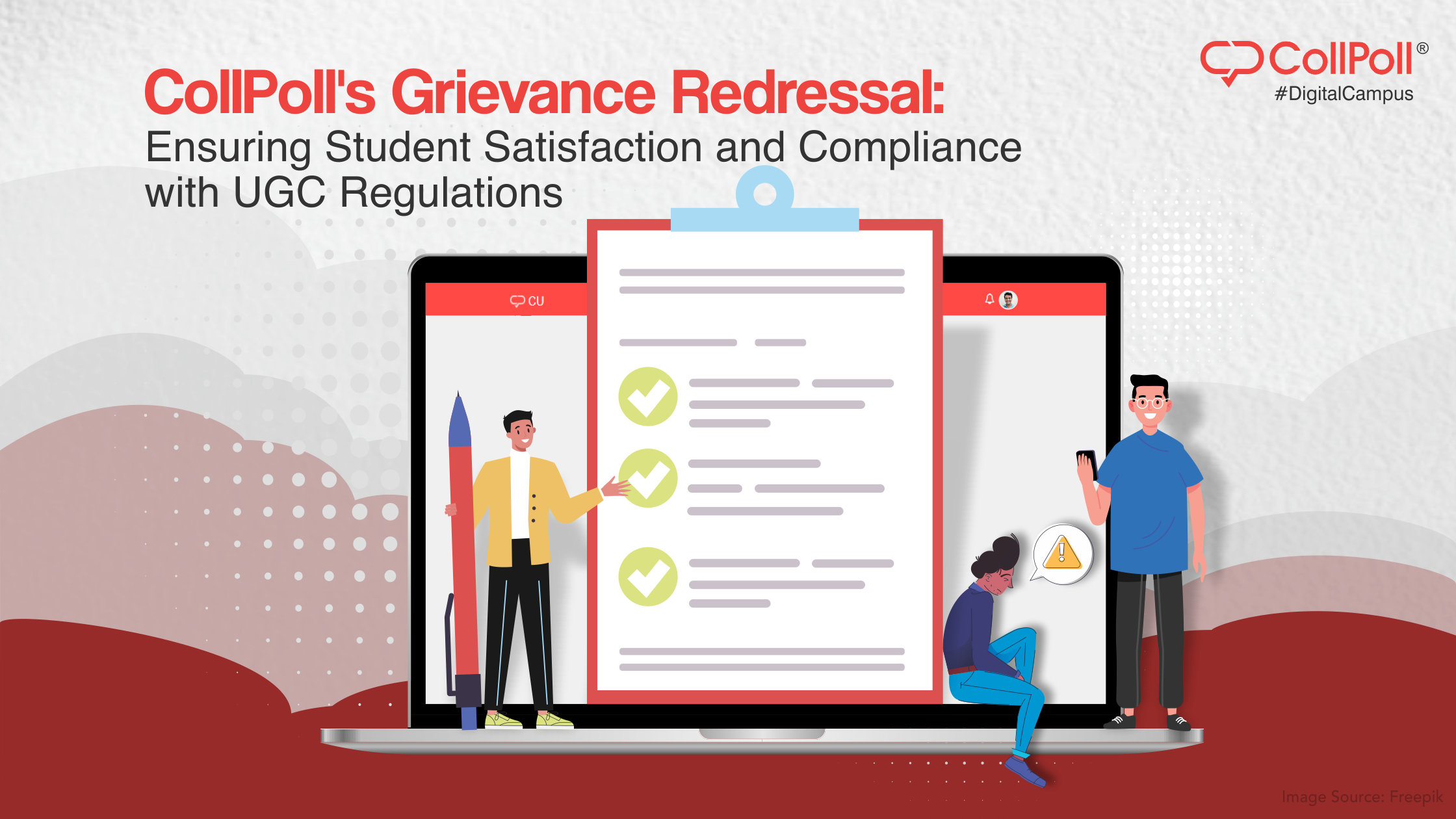The writing is on the wall now. In-person classroom learning has been the teaching style traditionally. Even our regulatory bodies had not emphasized enough online learning but that has changed now. So in my view, digital learning is the idea whose time has come. I would strongly recommend everyone to practice pranayama, yoga, and meditation. It helps us accept ourselves, the situation, and the world. It reduces the friction in our lives.
For mental well-being, it is the inner journey that matters. To know that the fountain source of happiness is within you is of the highest importance. Happiness derived from external sources is always temporary.”
In this interview with the CollPoll team, Dr. Pankaj Gupta, President – IIHMR University shares that Digital Education is the idea whose time has come. Join us in this insightful conversation with him on the role of technology in education, being mindful, and taking the inner journey.
As soon as lock-down was initiated, institutions started measuring loss in academics, and how to to make up for it. What measures have you taken at IIHMR University?
IIHMR is a premier university in the space of public health. Hence, not only did we have the responsibility of managing the continuity of university but also working with the state government on the larger public safety matters. Our Chairman – Dr. Gupta is a part of the advisory team formed by Government of Rajasthan. We started taking safety measures such as proper sanitization and social distancing even before the lock-down was announced.
Online classes were introduced to ensure academic activities are not impacted. A well-planned schedule has been implemented for online meetings across all the administrative functions. We have constantly been in touch with all our students, faculty members and even alumni. Some of our students have gone for their summer internships and we are doing our best to make sure they are safe.
Board of Studies and other important meetings will be done online to finalise the plan for the new academic year.
As a part of our social responsibility initiatives, we have conducted sessions on personal hygiene, distributed food and contributed to the PM Care & Chief Minister’s Fund. The university has organised several webinars with global experts to disseminate knowledge. Many of our faculty members have written articles in well-read media platforms and are in the process of publishing research papers in reputed journals on topics related to COVID19 pandemic.
Overall, with the proactive planning of the team, we have successfully transitioned into the digital world with enhanced productivity.
While the online learning has picked up, do you think an online environment can replace the in-person experience of a classroom?
The writing is on the wall now. In-person classroom learning has been the teaching style traditionally. Even our regulatory bodies had not emphasized enough on online learning but that has changed now. Hence, in my view, digital learning is the idea whose time has come.
Going forward, almost all the progressive institutions will adopt blended learning model where in-person classroom teaching will be complemented by online classes. The combination of pre-recorded lectures, simulations, virtual reality (VR) supported classrooms and live lectures will be the new normal.
I hope to see IIHMR CollPoll grow further and support all these functionalities.
How has your experience been working with CollPoll team?
I would like to compliment the whole team for being the pioneers and continuously innovating. We are very satisfied with the CollPoll platform and its functionalities. For example, most operations in our university have been made contact less with the use of work-flow automation technology of CollPoll. Several other functions such as placement office, hostels and even canteen have been technology-enabled by CollPoll platform.
As the platform is extensively used by many good institutions like ours, I am looking forward to the new technologies that will be introduced.
As the pressure mounts on teachers to teach online, many are struggling with these new means. How do you think we can enable such teachers?
People have to evolve with the environment. Initially when computers were introduced many were against it. Similarly, when smartphones were launched, many declared that touchscreen experience will not last long. Initially there may be some resistance but in my opinion we will be left with no option but to adapt ourselves to these new means.
As they say, when the learner is ready, teacher will appear. In this case, our teachers have to become learners and up-skill themselves. And I am very confident of our faculty members at IIHMR University.
While working from home, interactions can get limited to professional transactions. How can we drive empathy and mindfulness in online environments?
Nobody knows how long will this continue. This uncertainty gives birth to anxieties. In this context, we all have to understand that what is not in our control, we should accept it. We have to start living in the moment rather than brooding about it. And that is mindfulness – living in the moment.
I agree that the personal touch and social interactions have been impacted. This has also happened because the boundary between professional and personal environments have disappeared. We need a shift in the mindset at both – the employer level as well as the employee level to address this issue.
However, I strongly feel that as people get used to this new way of working, they will get more organised. They will again have time to interact with their colleagues, friends and families.
I would strongly recommend everyone to practice pranayam, yoga and meditation. It helps us accept ourselves, the situation and the world. It reduces the friction in our lives.
I see a big opportunity in this crisis. I know several teachers who are teaching English to students outside India. The whole world is available now. It is our time to rise to the occasion and become global leaders.
Can technology play a role in mental well-being of the stakeholders in an educational institution?
For mental well-being, it is the inner journey that matters. To know that the fountain source of happiness is within you is of highest importance. Happiness derived from external sources is always temporary.
I teach a course – “Ancient Wisdom for Modern Management” where I emphasize that the pleasures we feel from things around us are nothing but reflection of who we are. So until we harness ourselves, deriving true happiness will not be possible.
At IIHMR, we have a “Centre for Mindfulness, Wellness and Ethics” where we offer courses on topics such as ‘Self-awareness’, ‘Mindful Leadership’, ‘Money to Meaning’ and “Seva bhaav”, among others. These course have improved the performance of our staff and students significantly.
Technology can play a role helping individuals become more efficient and effective in the external environment so that they have time to focus on the inner journey.

